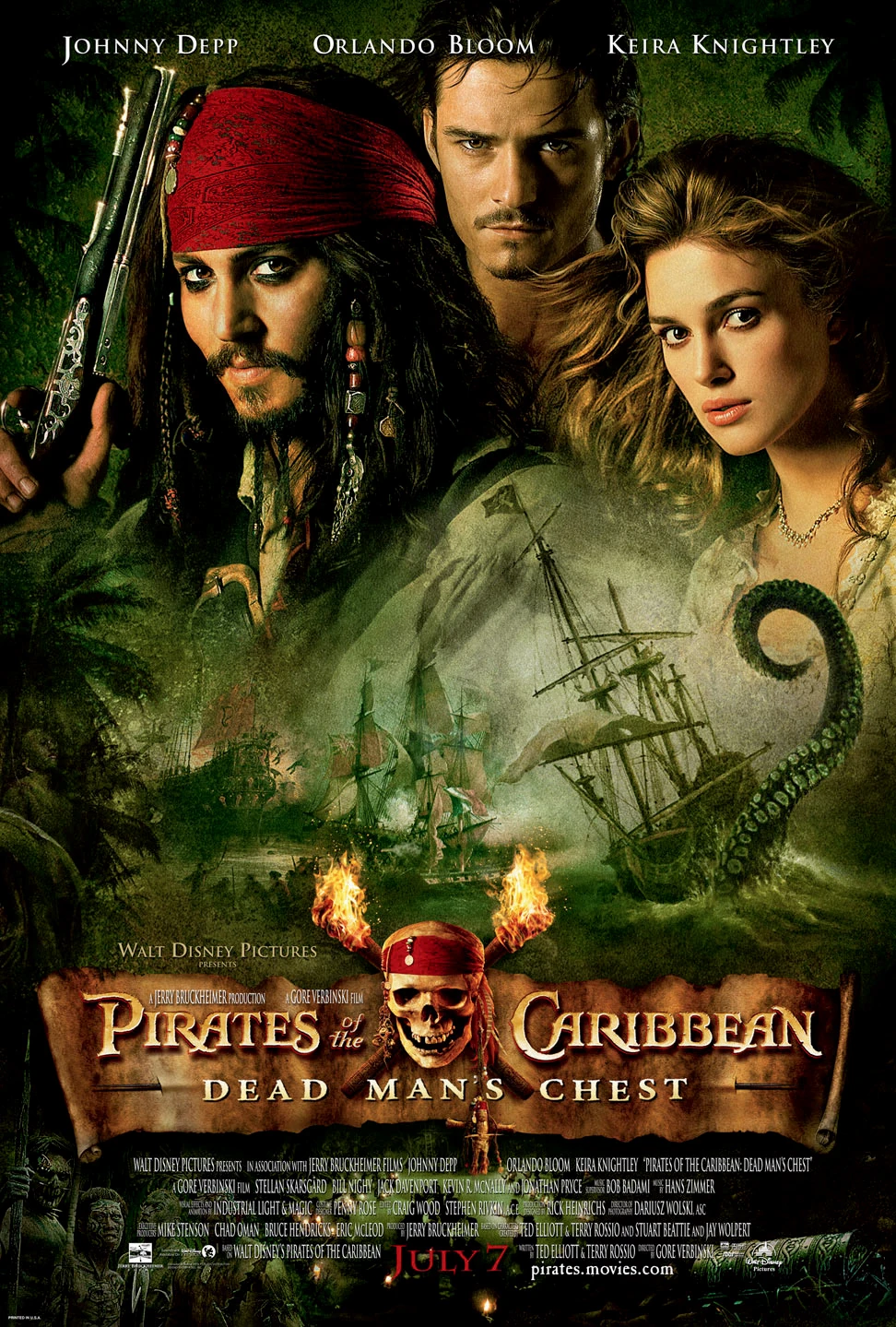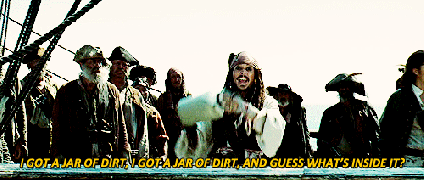
In 2001, the first installment of the Harry Potter film series, Harry Potter and the Sorcerer’s Stone (Philosopher’s Stone overseas), officially kickstarted a great new franchise adapted from the beloved, best-selling book series by author J.K. Rowling. One full decade later, the series officially concluded with the second part of the adaptation of the final book, Harry Potter and the Deathly Hallows, and for fans of the franchise, it seemed as if this was the end of the adventures within the Wizarding World… or so we thought. Just a few years later, it was announced that Rowling would be writing a new series of films inspired by the in-universe textbook Fantastic Beasts and Where to Find Them, a guide to the various creatures of the Wizarding World that was published for real in 2001. And while it’s safe to say that some may have initially questioned the idea of a film series based around a textbook, Rowling would soon go on to reveal more details about the new franchise. Specifically, it would be a prequel that took place 70 years prior to the events of Harry Potter and would focus on the adventures of the textbook’s author, Newt Scamander. The first installment of this series, which shared the name of its source material, hit theaters in November 2016. It served as Rowling’s first screenplay and saw director David Yates return to the franchise after previously helming the final four installments of Harry Potter. Upon its release, the film proved to be yet another success for the franchise, garnering solid reviews from both critics and audiences and grossing over $800 million worldwide, thus paving the way for this year’s sequel, Fantastic Beasts: The Crimes of Grindelwald, which delves further into the Wizarding World of the 1920’s. And while it does end up suffering a bit from a case of ‘middle chapter syndrome’, there’s still just enough of the things that have made this franchise a staple of pop culture to satisfy its devoted fandom.
Three months after aiding the Magical Congress of the United States of America (MACUSA) in capturing the notorious dark wizard Gellert Grindelwald (Johnny Depp), zoologist Newt Scamander (Eddie Redmayne) returns home to England to continue what he does best by looking after all the unique magical creatures that he comes across. However, Newt is soon placed on watch by the Ministry of Magic for his ‘unauthorized’ field trip to America and is pressured into assisting their Aurors (one of them being his older brother Theseus (Callum Turner)) in their efforts to hunt Grindelwald again when he ends up escaping from custody. Newt also learns that Grindelwald is specifically looking for Credence Barebone (Ezra Miller), the disturbed young man who, in the previous film, was revealed to be possessed by a parasite known as an Obscurus. And although he was supposedly killed by MACUSA, it is revealed that he survived and has traveled to Paris in the hopes of discovering his heritage. While he initially refuses to help the Aurors, Newt is ultimately convinced to go on his own accord by his old professor from Hogwarts, Albus Dumbledore (Jude Law), whose unique relationship with Grindelwald prevents him from joining in on the action. Thus, Newt, with the aid of sisters Tina (Katherine Waterston) and Queenie (Alison Sudol) Goldstein and Muggle Jacob Kowalski (Dan Fogler), who’s revealed to have kept most of the memories that he had prior to his alleged memory wipe, embark on a journey to ensure that Credence isn’t swayed by Grindelwald’s dark cause. For as they find out, Credence’s supposedly pure-blood heritage potentially makes him the only one who can possibly equal Grindelwald and his greatest adversary, Albus Dumbledore.
Now admittedly, Crimes of Grindelwald doesn’t always maintain the exact same quality of writing when compared to previous entries in the franchise. While some have criticized it for having a ‘minimal’ plot, I’d say that this film’s biggest issue lies more with its ending. For the most part, this film is clearly meant to be the entry in the series that is primarily intended to set up plotlines that will play a far bigger role in future films, and while I don’t mind the ways in which it sets up those films, it ends up resulting in its own finale being a bit too anti-climactic. Simply put, the big confrontation with Grindelwald that the marketing campaign has been alluding to doesn’t really happen, and what is ultimately there is taken care of rather quickly, which also means that not every plotline and bit of character development is given as much attention as it should be. But even with that in mind, that doesn’t completely take anything away from all the other great things that are in this film. While it does stumble a bit by the end, the rest of the film is very well-paced even if the plot is admittedly a lot simpler compared to some of the other films. And yet, even with that said, this film still manages to maintain what is easily J.K. Rowling’s greatest strength as a writer, her knack for world-building. Once again, this film does a phenomenal job when it comes to creating all the new locations and magical creatures that it brings to the Wizarding World thanks in large part to the always terrific production design and stunning visual effects that only manage to get better with each new film.
But as I’ve noted in the past, easily my favorite aspect of this new franchise is its main protagonists AKA the main quartet of Newt, Jacob, Tina, and Queenie. Even with the expectations spurred from the iconic trio of Harry, Ron, and Hermione, these four proved to be just as endearing as the series’ original leads. Plus, despite where some of the plotlines in this film end up taking them, their chemistry is still just as strong as it was in the first film. Most notably, Newt and Jacob continue to be a wonderful lead duo, with Eddie Redmayne continuing to maintain Newt’s incredibly sympathetic nature and Dan Fogler once again providing the film with many of its best humorous moments. Redmayne and Fogler also continue to have wonderful chemistry with Katherine Waterston and Alison Sudol as sisters Tina and Queenie, respectively, resulting in some of the film’s best emotional moments. As for the new additions to the franchise’s ensemble, easily the most prominent is Jude Law taking on the role of a young Albus Dumbledore. And while it should be noted that Dumbledore doesn’t factor into the plot as much as one would expect, Law still very much shines in the role, nobly following in the footsteps of Richard Harris and Michael Gambon. Other new additions like Callum Turner as Newt’s brother Theseus, Zoe Kravitz as Newt’s former classmate (and Theseus’ fiancé) Leta Lestrange, and Claudia Kim as the transforming Maledictus known as Nagini (who, of course, ends up becoming Voldemort’s snake companion in the Potter books/films) are solid as well.
And then there’s easily the film’s biggest question mark, Johnny Depp as Grindelwald. Ever since he was cast in the role, there has been a ton of controversy because of it. For starters, some fans weren’t too thrilled with the first film’s reveal that Grindelwald had been impersonating Colin Farrell’s Percival Graves, with many arguing that Farrell would’ve been a much better fit in the role. And while Depp’s role in the first film was ultimately quite minor, some predicted that this would eventually lead to yet another instance of his increasingly controversial over-the-top style of acting. But, of course, the biggest controversy to come from Depp’s casting was due to his infamous domestic abuse case in 2016, with many condemning the decision for him to be cast in a franchise that was developed by a woman who’s clearly been known to disapprove of this kind of behavior. And yet, at the risk of attracting some negative attention from those who were against his casting… Depp surprisingly manages to impress in the role of Grindelwald. Contrary to what some may have feared, he never really delves into the same over-the-top acting that he’s been known for these past few years. Instead, he establishes a suitably reserved but incredibly intimidating antagonist who can recruit others to his cause without much issue, and while he does suffer from the story seemingly saving his biggest moments for future films, Depp does make the most out of the material that he’s given. In short, while I want to make it perfectly clear that I’m not ‘defending’ any of Depp’s recent actions, it should be noted that, despite what some may ultimately claim, none of this film’s shortcomings are primarily because of him.
At the time that I’m writing this, Fantastic Beasts: The Crimes of Grindelwald is the only entry in the Wizarding World saga to attract a mixed-to-negative reception from critics… and yet, it’s seriously not as bad as some of those critics have been claiming. To be clear, though, I’m not saying that it’s perfect because, in the opposite scenario of what happened with Lord of the Rings: The Two Towers, this film does fall victim to the dreaded ‘middle chapter syndrome’. While I don’t dislike any of the ways in which the film sets up future installments of the franchise, along with how it often ties itself back to Harry Potter, there are a few plot threads and bits of character development that would’ve benefitted from having more attention given to them. But despite all this, everything else that’s great about the Wizarding World franchise is still on display here. J.K. Rowling’s world-building is still second-to-none and the main characters are just as endearing as ever while being joined by some solid newcomers. And yes, as controversial of a claim as it’ll undoubtedly be, Johnny Depp doesn’t phone it in whilst portraying the title role of Grindelwald. I understand why some have been hesitant about this film because of his involvement, but I hope that it doesn’t completely turn people away from seeing it given those who were involved that obviously weren’t tied to Depp’s incidents. In other words, Depp’s involvement has clearly cast an incredibly dark shadow over this new series that, unfortunately, it might not be able to overcome. But as for me, I’m still very much a staunch defender of the Fantastic Beasts franchise and I look forward to seeing it continue.
Rating: 4.5/5








